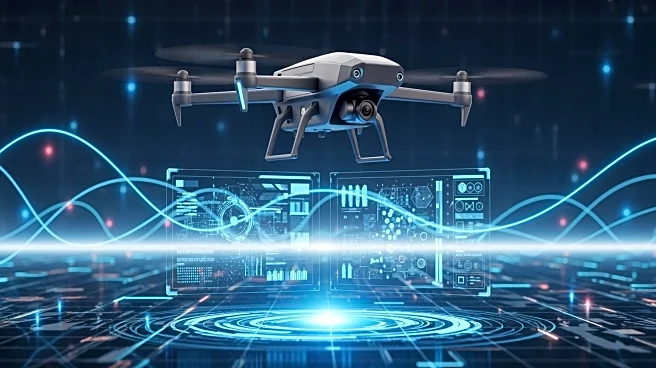What's Happening?
The North Korean state-sponsored group Lazarus is conducting cyber attacks on European companies involved in unmanned aerial vehicle (UAV) technology, as part of Operation Dream Job. These attacks utilize
fake job offers to infiltrate systems and steal sensitive information. The campaign appears to focus on gathering data related to weapon systems deployed in Ukraine, coinciding with North Korean soldiers reportedly aiding Russia in the Kursk region. The targeted companies are involved in critical drone component manufacturing and UAV-related software development, suggesting an interest in enhancing North Korea's domestic drone capabilities.
Why It's Important?
These cyber attacks highlight the ongoing threat posed by nation-state actors like North Korea, which seeks to advance its military technology through espionage. The focus on UAV technology is significant, as drones play a crucial role in modern warfare and surveillance. The theft of intellectual property and manufacturing know-how could bolster North Korea's drone program, potentially altering the balance of power in military technology. This situation underscores the need for robust cybersecurity measures and international cooperation to protect sensitive industries from such threats.
What's Next?
European companies and governments may need to enhance their cybersecurity protocols to prevent further breaches. International collaboration could be crucial in addressing the threat posed by Lazarus and similar groups. The situation may prompt discussions on cybersecurity standards and the sharing of intelligence among affected nations. Additionally, diplomatic efforts might be necessary to address North Korea's actions and mitigate potential geopolitical tensions.
Beyond the Headlines
The attacks reflect broader issues of cybersecurity vulnerabilities in critical sectors, emphasizing the importance of proactive defense strategies. The involvement of North Korean soldiers in Russia and the focus on UAV technology suggest a strategic alignment between the two countries, potentially impacting global security dynamics. The situation raises ethical questions about the use of cyber espionage in international relations and the protection of intellectual property.










